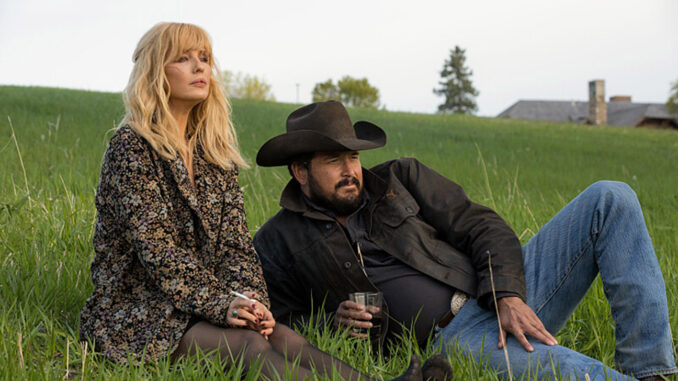
From Saddle to Screen: How Cole Hauser Made Rip Wheeler His Own
The cowboy, a silhouette against an endless horizon, a stoic figure embodying a bygone era, has long been a fixture of American mythology. But in a landscape saturated with reboots and reimagined heroes, it takes a special alchemy to forge a character that not only honors the archetype but also transcends it, becoming an icon for a new generation. Such is the magic woven by Cole Hauser in his portrayal of Rip Wheeler on Yellowstone. From the moment he first galloped onto the screen, Hauser didn’t merely play Rip; he breathed life into him, imbuing the character with a singular blend of menace, loyalty, and quiet devotion that has made Rip Wheeler unmistakably, uniquely his own.
Hauser’s transformation begins with the physical, bridging the rugged authenticity of the “saddle” with the demands of the “screen.” Rip Wheeler is a man carved from the land itself – lean, hard, and weathered, with a gaze that promises both unwavering protection and swift, brutal retribution. Hauser doesn’t just wear the cowboy hat and chaps; he inhabits them with an organic ease that suggests a lifetime spent in the saddle. His posture is a testament to Rip’s nature: often coiled, ready for action, yet capable of a predatory stillness that speaks volumes without a single word. Every movement, from the way he dismounts a horse to the deliberate pace of his walk, is imbued with a grounded weightiness that anchors Rip firmly in his world, making him feel less like an actor playing a part and more like a force of nature. This physical embodiment is the foundation upon which Hauser builds, immediately signaling that this isn’t a generic tough guy, but a man forged by harsh realities.
Beyond the physicality, Hauser’s command of Rip’s voice and demeanor elevates the character from a stock tough guy to a captivating enigma. Rip’s voice is a low growl, often clipped and economical, each word chosen with the precision of a predator. Hauser’s delivery infuses these sparse lines with an incredible weight, making Rip’s quiet pronouncements far more terrifying than any verbose threat. He masters the art of non-verbal communication, letting a tightening jaw, a narrowed eye, or a barely perceptible shift in posture convey entire paragraphs of intent. Whether he’s staring down a trespasser or offering a rare moment of tenderness to Beth, the controlled intensity in Hauser’s eyes tells a story of a man constantly on guard, calculating, and fiercely protective. This deliberate restraint in performance is a masterstroke, drawing the audience in, compelling them to search for the deeper emotions beneath the hardened exterior, proving that sometimes, less truly is more.
Yet, it is in the exploration of Rip’s heart, a vulnerable core carefully guarded beneath layers of trauma and unwavering loyalty, that Cole Hauser truly makes the character his own. A lesser actor might have played Rip as a one-dimensional enforcer, but Hauser expertly peels back these layers to reveal the complex man beneath. His scenes with Beth Dutton are perhaps the most compelling illustration of this depth. With Beth, Rip sheds his predatory stillness, revealing a fierce, almost awkward tenderness. The raw, guttural “I love you, Beth” is delivered not with smooth romanticism, but with a gravelly honesty that speaks of a man utterly devoted, a love hard-won and deeply cherished. Hauser conveys Rip’s internal struggle—his tragic past, his adoptive loyalty to John Dutton, his personal code of honor (however brutal)—through subtle reactions, a haunted look, a moment of introspection that belies his outward stoicism. This emotional authenticity humanizes Rip, transforming him from a mere instrument of Dutton justice into a compelling figure worthy of empathy and understanding.
In the end, Cole Hauser didn’t just interpret Rip Wheeler; he manifested him. He took the broad strokes of a classic cowboy archetype and filled them with meticulous detail: the way he wears his hat low, the economical brutality of his movements, the low rumble of his voice, and most importantly, the profound, almost spiritual loyalty that burns beneath his steely exterior. He ensured that Rip Wheeler wasn’t just another character on television but a lived experience, a man who carries the weight of his past and the burden of his present with a stoic grace. From the dusty saddle of a working ranch hand to the iconic presence he commands on screen, Cole Hauser forged Rip Wheeler into a modern legend, a testament to the actor’s craft in making a role so profoundly his own that it is now impossible to imagine anyone else in those worn boots.
